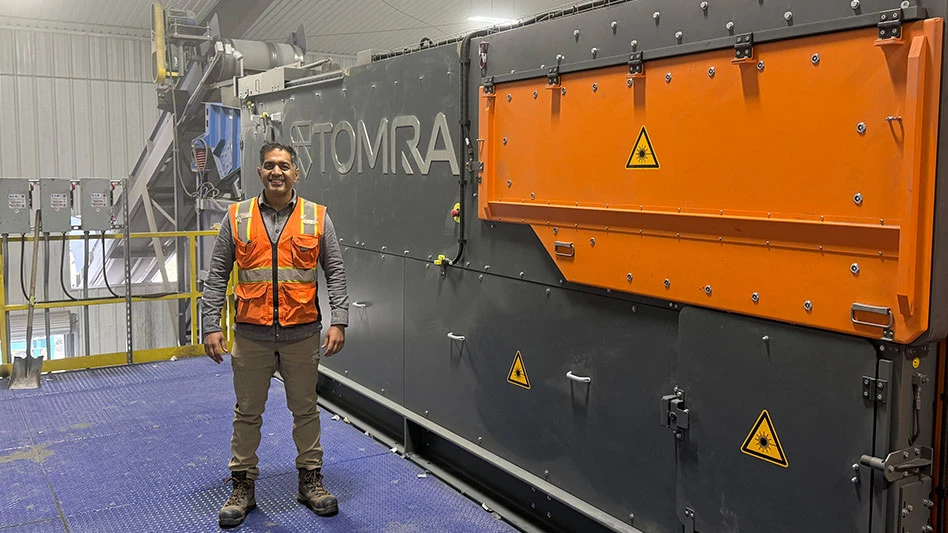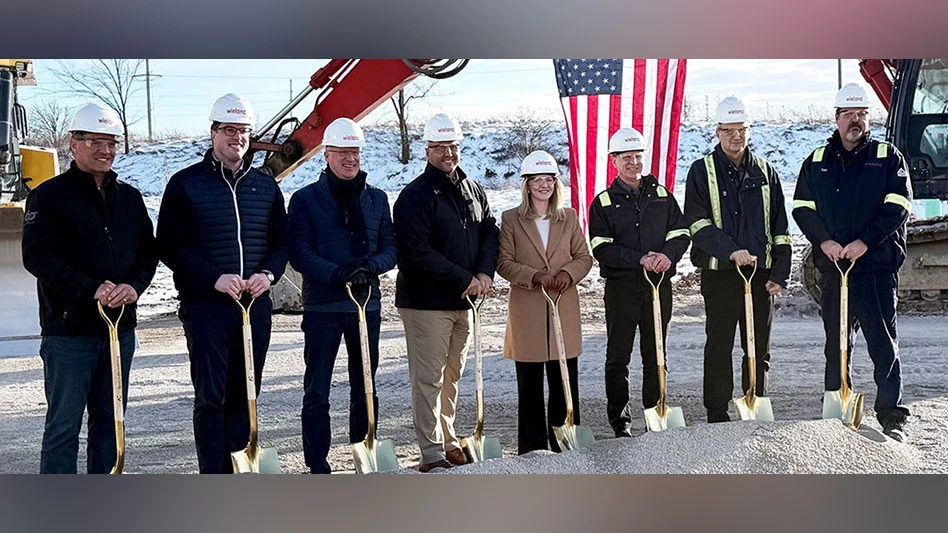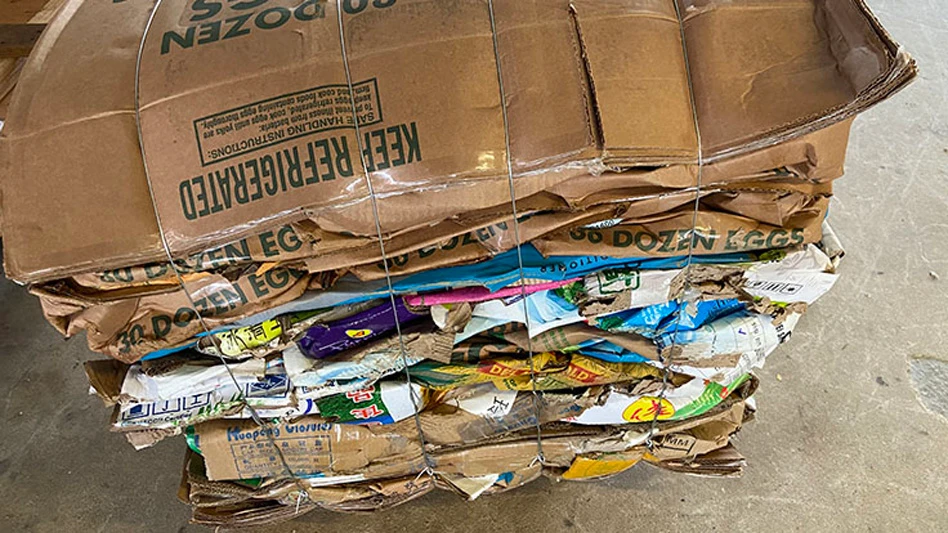
Scrap processing facilities that shred large volumes of complex materials understand that safety compliance and minimal downtime are essential to maintaining operational efficiency.
The Best Practices in Shredding forum at the Recycled Materials Association (ReMA) 2025 Convention & Exhibition, moderated by Riverside Engineering President Randy Brace, not only emphasized the importance of safety protocols, it also addressed the importance of maintaining an inventory of critical spare parts and fire mitigation.
ReMA 2025 was May 12-15 at the San Diego Convention Center in California.
Stressing safety
Orange, California-based SA Recycling’s National Shredder Operations Analyst Jorge Simoes kicked off the panel by stressing the importance of workplace safety standards.
“Managers must always account for the worst that can happen as they’re ultimately responsible for facility operations. We need to ensure a proper education for the people that work in our operations,” he said. “We want everyone to work the day and come home safe. That’s the ultimate goal.”
One of the most important things that managers and yard operators can do, he continued, is to ensure employees understand the “why” behind the messaging.
“That’s the key,” Simoes said. “It’s not just a written commitment that they attend a safety meeting, it’s to make sure that they understand the message because it’s a natural human behavior to take shortcuts.”
Strict adherence to safety protocols, such as the use of personal protective equipment (PPE) and restrictions on cellphone use while in the yard or on the floor, doesn’t just apply to workers. Visitors and other people who aren’t familiar with the facility also must understand the importance of compliance.
“No one wants to come home blind because they didn’t wear the safety glasses,” said Adam Weitsman, the owner of Upstate Shredding LLC, headquartered in Owego, New York. “Even if it’s an employee or ourselves visiting a yard. It’s important that every single employee takes PPE serious. You know, you might say ‘I’m not going to use these gloves now, I’m just moving this piece of scrap there.’ Well, things happen, and if you get a cut in your hand, it could get infected, and it’s going to be time off work. It would be a lot simpler to use that glove.”
The responsibility to enforce safety protocols and procedures starts at the upper level of a company.
“I had to get with the culture myself,” Weitsman continued, adding that at one point he was probably the worst offender in his company. “The culture is everything, right? You have to [wear PPE], and your people have to buy in. And once the culture is set, people really self-police themselves.”
Simoes also stressed the importance of having visitors who are not familiar with the yard report to the main office to ensure they’re wearing the proper safety gear and that they understand the importance of staying within designated areas.
“Everything [at our facilities] is painted and roped off to keep everyone where they should be because so many accidents have happened because of not having that,” Weitsman added. “We’ve definitely limited the number of accidents once we got strict.”

Automating operations
The benefits of transitioning to auto- mated shredding operations also was discussed during the session.
“If you have a seasoned operator that fully understands the capacities of the shredder, a fully automated system—it’s the key,” Weitsman said. “[With auto- mation] we gain about 10-15 percent [in productivity]”
Automated systems also allow operators to be relocated to the main office, where they can be farther away from potential explosions and various other hazardous events.
Simoes noted that in today’s world, with the technology that’s available, there’s really no need for the operator to be so close to the shredder.
“It’s not going to be more productive,” he said. “Actually, I think it’s going to be more counterproductive because [the operator can become] a lot more distracted.
“If you are relying just on the technology, if you’re made aware that you just have a screen to look at [where you’re able to monitor your infrared cameras and visualize what’s going into the shredder], it could be a lot more efficient.”
Stocking spares
Panelists also agreed that stocking critical spares is another key component of maintaining operational efficiency.
“Our biggest fear is downtime. Downtime is the worst thing,” Weitsman said, adding that if something is wrong with its shredder motor, Upstate Shredding wants to have another exact motor on hand, ready to be installed.
Simoes said having an extra rotor or motor on-site, for example, are minimum spares an operator should have in stock. The risks of not having them—such as extended downtime and the potential loss of market share—are simply not worth it.
“My rule of thumb is that if you cannot get anything into your plant in three or four days at most, it’s critical,” he said, adding that some spares might take eight months to a year to be delivered to a facility. “It’s not 1980 anymore, and you don’t just get stuff off the shelf like we used to.”
But maintaining workforce safety protocols and keeping critical spares on hand are just two pieces of the puzzle.

Befriending fire officials
Developing a relationship with the local fire department and educating firefighters about yard operations also help to maintain worker safety and operational efficiency at shredding sites.
“I know that for many of our yards, we have a close relationship with the fire department,” Simoes said. “If you call [them], you want them to know the ins and outs of your operation. In case of a fire, the more knowledge you give them, the more you can help them.
“You don’t want to come to the point where you need them, and [they’re ready to] hook up their hoses, and your fire hydrant threads are not the same. Or they don’t know what material they’re dealing with. The more you can educate them, the better [their response will be].”

Explore the June 2025 Issue
Check out more from this issue and find your next story to read.
Latest from Recycling Today
- Aduro selects Netherlands as site for industrial scale-up facility
- Nasco-Op declares dividend
- Cyclic Materials announces plans for South Carolina campus
- WM reports revenue, earnings growth in Q4 and full-year 2025
- Solarcycle’s Cedartown, Georgia, recycling facility opens
- Stadler equips Spanish MRF
- SSAB finishes 2025 with decreased revenue
- Vecoplan appoints CFO





